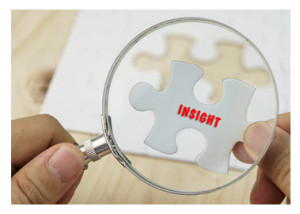 Timelines. So useful. They lend insight at a glance, and offer visual chronlogies to study by.
Timelines. So useful. They lend insight at a glance, and offer visual chronlogies to study by.
Need examples?
You’re cramming for an art history exam, so you open your text book to a timeline. You’re arguing over fettuccine about early 20th century influence on current geopolitics, so you Google a timeline. And if you’re attempting to distill 20 years of professional achievements into interview sound bites?
Pull out the resume or CV, which would easily map onto a timeline.
Now imagine this. You’ve lived half your life and you’re trying to get to know someone new. Where do you begin? How do you present a big picture view and appropriate detail?
How to Highlight 40 Years? Or 50? Or…?
How do you organize your thoughts in order to share your stories? And what if you have decades to share?
What are the salient points you would like to convey? How helpful might it be to have a visual chronology — a personal timeline that would spark memory and clarify what’s significant?
Recently, I saw an astonishing feat of substance and brevity — a 19th century “histomap” of the world, which led me to ruminate on the value of such “early” infographics. Regardless of the selection of details to include or omit, doesn’t a long, topical timeline sound like a fascinating exercise?
Having written more than a few resumes in my life, shaping them at various points to represent an accurate chronology with specific highlights, I know the value of documenting where we are and how we got here. And let’s not forget the all-important gap analysis when looking to get to a new “there from here.”
When a friend suggested that a personal timeline would make an interesting project, I couldn’t get the idea out of my head. So bear with me, as I toss around what that might mean.
Events, Experience, Learning
Unlike a resume or even a purely historical timeline, it seems to me that a personal chronology should be at least as much experiential as it is event-based. Sure, the usual milestones would slot quickly: birthdate, birth place, schools, degrees, marriage, children, relocation, and so on.
But what else might you include? First love? First car? First movie that led you to a career in film making? The occurrence of injuries or illness that hammered home critical life lessons? Disappointments that led you to drift for a few years?
How about relationships of note and the length of time that each endured? Travel overseas? Living overseas? Mastery of pie crust after 10 years of trying? A book deal? A patent fight? A three-year dispute with a neighbor over a tree?
How might you capture a Blue period of five years — sans Picasso?
Would you consider crafting a list of 10 revealing things people don’t know about you and mapping those elements onto your timeline?
I can reasonably assume that most of us would turn to the official resume and overlay its milestones as they stretch across the years. In doing that, we might need an array of colorful highlighters to show the increasingly overlapping and parallel nature of multiple jobs, careers, and roles.
Timelime… And Then Some
My personal history is who I am to date, though any representation would only capture fragments of the whole, and my ever-evolving individual view. But what revelations might offer useful insight for the future? What meaningful moments would arise with greater impact than anticipated?
 The first time I ever felt truly “free,” the passing of grandparents and parents, pets I have loved, books and films that changed me, artworks that altered my vision, the birth of dreams, the first time my writing appeared in print, and the first time I was proud of my writing that appeared in print.
The first time I ever felt truly “free,” the passing of grandparents and parents, pets I have loved, books and films that changed me, artworks that altered my vision, the birth of dreams, the first time my writing appeared in print, and the first time I was proud of my writing that appeared in print.
How would I represent a period of contentment? How might I depict happiness or ease — with symbols, colors, images?
As I consider how this exercise could unfold, I’m excited at the prospect of giving it a whirl. Not only do I think it’s a starting point for conversation — and a “parental” variation might be illuminating for my adult children — I imagine the insights to be gained would be enormous.
- Have you ever created a personal timeline?
- If so, what did you learn?
- If not, any interest in trying it?
- Can you distinguish your own facts from factoids?
You May Also Enjoy
A time line is a great idea. I know a lot of women who journal and this could be recreated. Alternatively it would be good to make as you go along. If you do not there is always the human frailty of revisionist history.
I love this idea! Will try it myself.